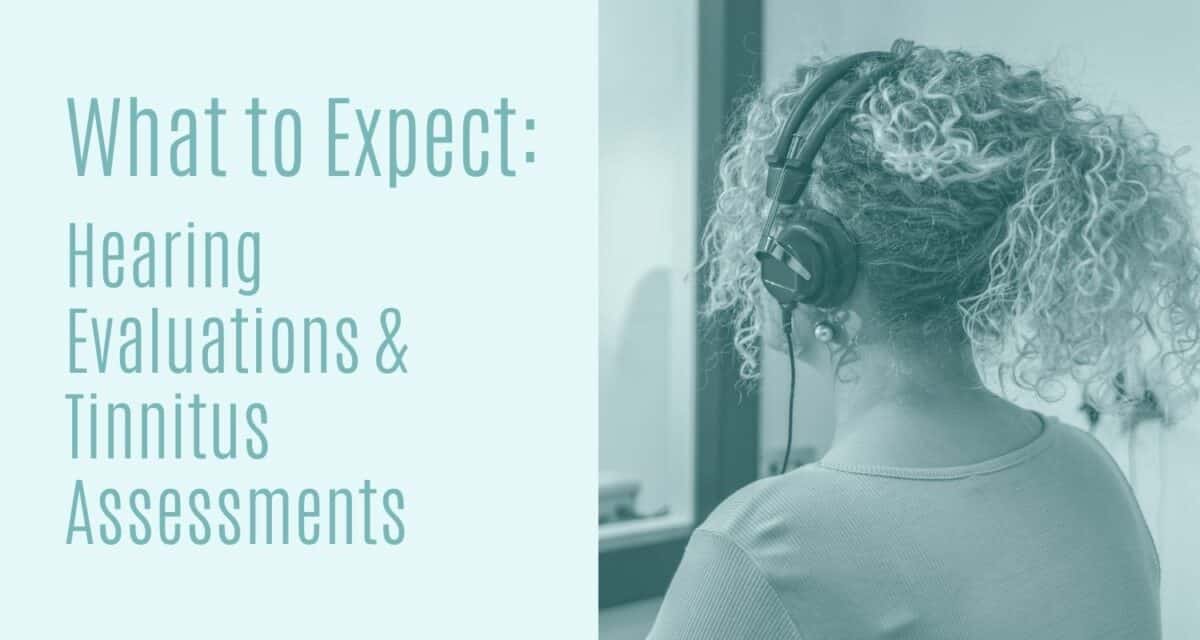Hearing Evaluations
Hearing evaluations are recommended annually for adults age 50+. If you suspect you already have a hearing loss, the test will tell you the exact nature of your condition, and what can be done to treat it. If your examination reveals an average hearing ability, your time wasn’t wasted – it will serve as a benchmark for future hearing tests to be measured against.
A hearing appointment with us takes approximately 2 hours. If you have had your hearing evaluated before, we ask you to provide a copy of your results and relevant information about your medical history.
The hearing evaluation typically consists of four main parts:
- A consultation
The first step is to learn more about your medical background. Hearing loss can come from several sources, so a few questions about your medical history can help us decide whether your family has anything inheritable or hereditary that may relate to your current condition.Medical conditions, including allergies, colds, hearing infections, and even ear wax can result in hearing loss. We can also ask if you have experienced recent trauma to your head or ears because any injury to those areas may lead to a temporary or permanent hearing loss.
- An ear examination
We will use an otoscope to inspect your ears. We’re looking for any debris, foreign objects, or impacted earwax that might be causing an issue. Blockage from the outside of the ear to the middle ear can result in some hearing loss. - Hearing tests
The Pure Tone Test is the first test. Different tones are heard through a headset, and when you hear a noise, you will be asked to click on a button. The sounds gradually quieten down in volume until you are unable to hear them. This is normal – we are looking for the softest sounds you can hear.Next, a speech recognition test will be performed. It checks your speech comprehension abilities in the absence of visual cues, such as lip gestures or facial expressions. We are going to play speech through headphones and ask for what you heard to be repeated.
Aside from the tests above, we might also decide on additional testing, such as:
- Tympanometry: An evaluation of the tympanic membrane and the middle ear.
- Acoustic Muscle Reflex measurements: An evaluation of the middle ear reflex – this helps to determine the hearing loss you may have.
- Otoacoustic Emission measurements: An evaluation of the outer hair cells of the cochlea. This is especially helpful in the identification of hearing loss in infants and children.
- A discussion of your results
Once the tests are completed, we will explain your results using an audiogram, which is a visual representation of your hearing abilities. If the tests show you have a loss of hearing, we will review the options you have when it comes to treatment.
Tinnitus Assessments
Tinnitus is experienced differently by everyone. This is why our tinnitus consultations focus on the specific symptoms of tinnitus, how it affects you, and how we can help you manage your symptoms.
- A tinnitus consultation
Based on the results of your hearing tests and the details about your particular symptoms, we’ll discuss your symptoms in detail and how your quality of life has been affected. - Hearing tests
We check for hearing loss when dealing with your tinnitus. This is because approximately 90% of tinnitus cases often come accompanied by a loss of hearing. We perform many of the same tests as in a regular hearing evaluation.We also carry out tinnitus matching to help the patients detect their specific kind of Tinnitus. This is done by introducing familiar tinnitus sounds in various pitches. We’re looking for an exact replication of the pitch and loudness of your tinnitus sound, which will help us find the best way to treat it.
- Treatment
Although there is no single cure for tinnitus, there are many ways we can help you treat the symptoms and alleviate the condition. Many people have found success with treatments and have managed to go back to living the life they want.


